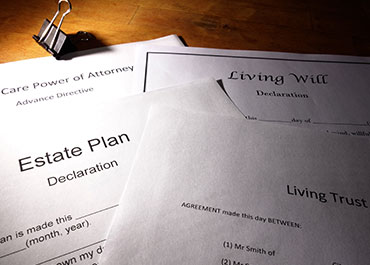
Understanding The Difference Between Wills And Trusts
What are the key differences between these two documents? A will is generally used after death to dictate how your assets will be distributed. A trust, on the other hand, is usually established and used during your lifetime, though it can also manage assets after death.
Which one is right for you? Choosing between a will and a trust often comes down to cost and complexity. While a will may be less expensive to set up, it can become more costly and time-consuming for your beneficiaries after your death, as they will need to navigate the probate process. A trust, though more expensive to establish, can offer greater efficiency both during your lifetime and after death, allowing your assets to bypass probate.
What Happens If You Pass Away Without A Will Or Trust?
If you pass away without a will in place, Virginia law establishes an order of inheritance based on available heirs:
- If you’re single with no children, your assets go to your parents.
- If you have children, they inherit your assets.
- If you’re married with children, your spouse inherits everything.
- If you have children outside of your current marriage, your assets are split between your spouse and children.
However, creating a written will allows you to name an executor, ensuring that your estate is handled expressly according to your wishes. Additionally, you can specify that your executor serves without bond, simplifying the process.
The key benefit of a trust is that it operates based on your instructions, without court involvement. With a will, the court supervises the distribution of your assets, which can be time-consuming and costly. A trust, however, allows you to transfer assets by providing a document to your bank or other institutions, streamlining the process. And if there are any questions during your lifetime, you can answer them directly, avoiding the need for a judge or additional legal fees.
What Costs Are Involved?
Many clients have pressing, specific questions about costs, and what to expect. For a typical estate, probate costs through a will can range between 5% and 7% of the estate’s value. With a trust, the costs are typically about 10% of that amount, but the expense is paid upfront rather than at death.
Still Have Questions? Ready To Get Started?
For more information on Wills Vs Trusts, an initial consultation is your next best step. Get the information and legal answers you are seeking by calling (571) 260-0827 today.
